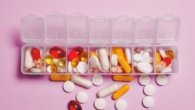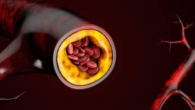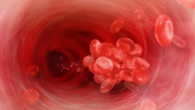
What to do in case of alcohol poisoning
< /p> 0
Rules of first aid and symptoms for which an ambulance should be called.
What is alcohol poisoning
The average healthy liver is able to neutralize and excrete only 30 ml of pure alcohol every 90 minutes. If you drink more, alcohol breakdown products accumulate in the blood. Together with the blood flow, they travel around the body, causing damage to internal organs, including the heart and brain.
Any excess of strong drinks above the dose indicated above is, in fact, intoxication of the body. But depending on the amount, strength, and quality of what was drunk, it is of different strength.
Alcohol poisoning is what happens to the body when too much alcohol gets into it in a short time. Such intoxication is not only unpleasant and painful, but can also be fatal.
When intoxication is conditionally safe
These symptoms are familiar to almost everyone:
- difficulty breathing, shortness of breath;
- confused speech, difficulties with logical reasoning;
- Distorted vision and hearing;
- disordered balance;
- headache;
- nausea up to vomiting;
- temporary darkening of the eyes.
It is good if the matter is limited to this. The condition is not the most pleasant, but, fortunately, not very dangerous. Most often, it is treated with a date with a “white brother”, time and sleep, develops into a morning hangover and goes away without a trace in 24 hours.
It is much worse if a new symptom is added to the above-described symptoms.
When you need to call an ambulance immediately
Here are the signs that intoxication seriously threatens health, and possibly life:
- clouding of consciousness (a person stops understanding , where he cannot coherently answer questions);
- strong vomiting;
- convulsions;
- rare breathing – less than 8 breaths per minute;< /li>
- irregular breathing – the interval between breaths is more than 10 seconds;
- pale or blue-tinged skin;
- lowered (below 36.2 °C) body temperature;< /li>
- loss of consciousness or sudden falling asleep, and the victim cannot be woken up.
The last item in combination with others is the most dangerous. Never think that it will be possible to “sleep”: in this state, the risk of death increases dramatically. Therefore, seek medical attention immediately.
Emergency is also the only possible option if you suspect that you or a person nearby has been poisoned by low-quality alcohol – the one in which other forms of alcohol coexist with ethanol. We are talking about isopropyl alcohol (found in lotions, some detergents), methanol and ethylene glycol (contained in antifreeze, car glass cleaners, paints, solvents).
These substances are much more toxic than ethanol. For example, symptoms of widespread methanol poisoning include:
- difficulty or complete cessation of breathing;
- blurred vision or partial or complete blindness;
- sharp drop in blood pressure;
- headache;
- severe dizziness and confusion;
- nausea;
- severe abdominal pain;
- vomiting, sometimes with blood;
- loss of consciousness and coma.
Similar symptoms in isopropyl alcohol poisoning and ethylene glycol.
What to do before the ambulance arrives
Wait. There are very few options to help the victim. Here are a few things you can do:
- Try to keep the victim conscious. Or, if it's about you, do whatever it takes to stay awake.
- Do not leave a sleepy or unconscious person alone. Alcohol poisoning affects the vomiting reflex, a person risks suffocation.
- If the victim vomits, help him. Try to sit him up or turn his head to the side if he is lying down. This reduces the risk of choking on vomit.
- In no case do not try to induce vomiting specifically!
- You can give the victim activated charcoal or another sorbent. But only if he has no problems swallowing!
What to do if the poisoning is conditionally safe
If you feel unwell after drinking, but you believe that the situation is under control and does not require a medical call, you can try to alleviate the condition with home methods.
- Drink more water. This is necessary to eliminate dehydration caused by alcohol.
- If the water does not go down, try tea with honey. Drink it in small sips to make it easier to walk.
- If you have over-the-counter rehydration solutions at home, take them.
- Eat the sorbent in the required dosage. It is best not to use good old activated charcoal (for the effect you need to drink up to two dozen tablets — a dubious pleasure), but modern means.
- Take a walk. Movement will help distract you and speed up the removal of toxic substances.
- Sleep more. Usually, the symptoms of mild alcohol poisoning pass within 24 hours. You just have to survive this time.
How to prevent alcohol poisoning in the future
Let's repeat: the main cause of alcohol poisoning is unbridled drinking. Experts from the authoritative research organization Mayo Clinic define it as follows: when a man consumes five or more alcoholic beverages within two hours, and a woman consumes four or more within the same period.
The concept of “one drink” (portion) established very clearly:
- 355 ml of ordinary beer with a strength of about 5%;
- 237-266 ml of malt liquor with a strength of about 7%;
- 148 ml wine with a strength of about 12%;
- 44 ml of alcohol with a strength of 40%.
Keep in mind that cocktails can contain more than one portion of alcohol or take longer to process, affecting the body more seriously , than pure booze.
Try not to exceed the above doses in any case. Better yet, limit your alcohol consumption to one drink a day if you're a woman or man over 65, and two if you're a man under 65. Enjoy the drink slowly. This will allow you to stretch the pleasure and not hit your own body.









Leave a Reply